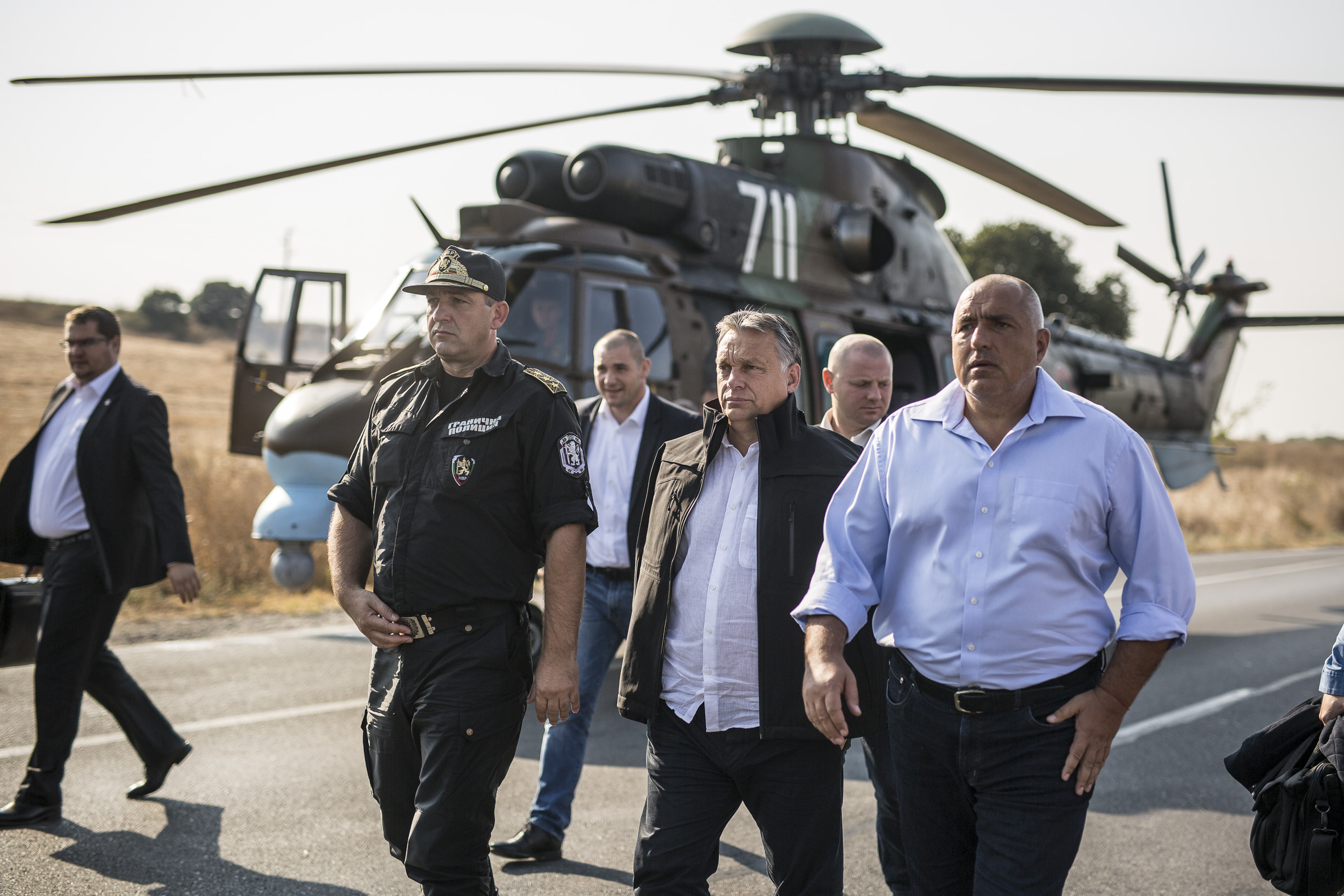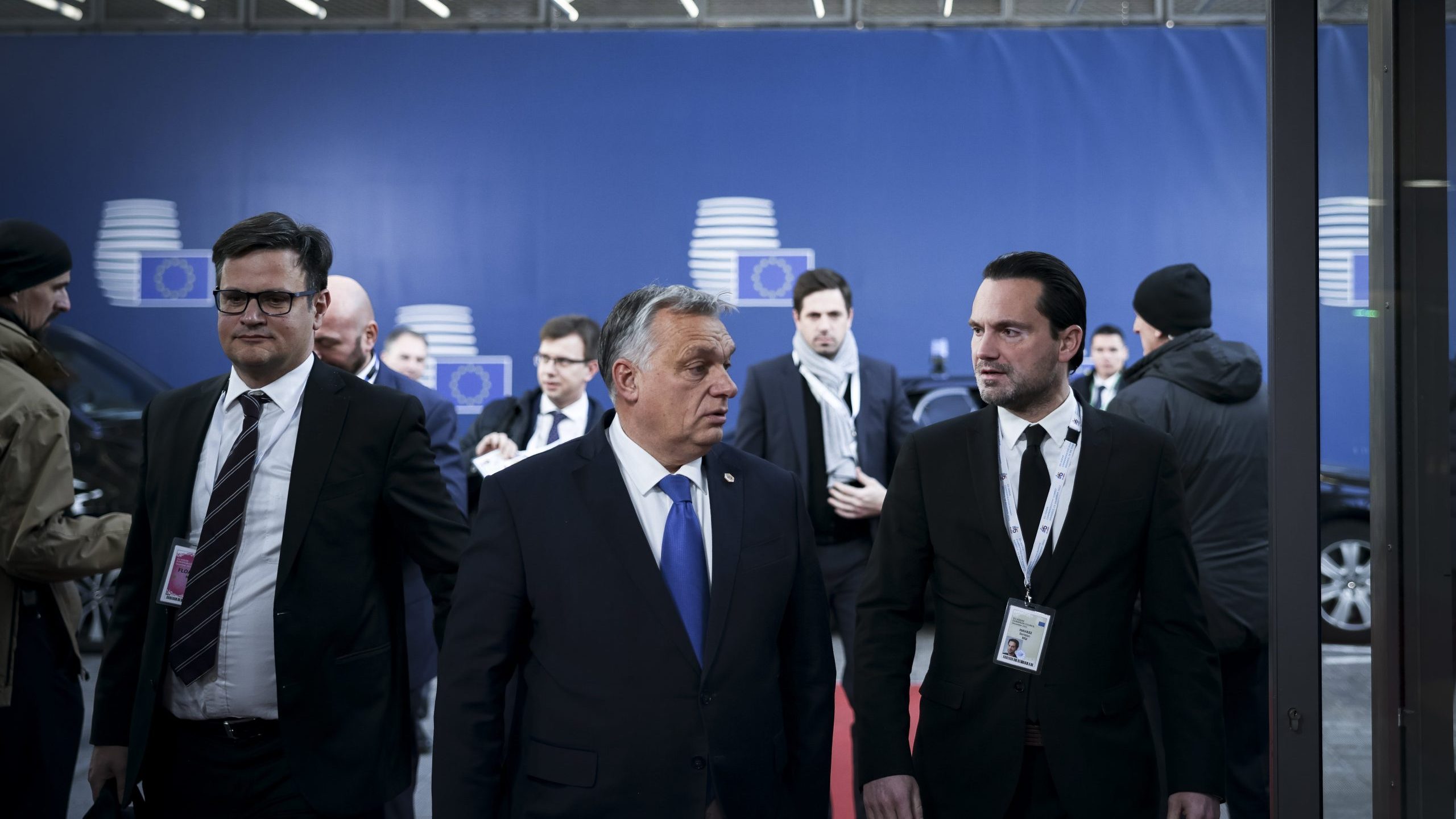
A press conference was held after the inspection near the border fence, not far from the Lesovo border crossing station on the Bulgarian side of the border. At the press conference Mr. Orbán said that Bulgaria’s successful defence effort is in everyone’s best interest. The Prime Minister said that Europe does not concern itself much with Bulgaria, but the EU should help the country in its efforts. The EU Member States which are also members of the Visegrád Four group (the Czech Republic, Hungary, Poland and Slovakia) have also agreed to help Bulgaria, he said, and at the EU summit being held in Bratislava on Friday they will propose that the EU follows suit.
“Bulgaria must not be left to fend for itself; it is not fair that […] it is compelled to bear the burdens of protecting its borders on its own, as it is not only protecting itself, but us as well”, the Prime Minister said. “If we can give Turkey – which is not a member of the EU – three billion euros, it is unthinkable that we should be unable to give 160 million euros to Bulgaria, which is a member of the EU”, he added.

According to a report by the Bulgarian news agency BTA, Mr. Borissov said that until recently Sofia has been left to its own devices in the protection of its borders, and has been forced to overcome grave difficulties. “We cannot find a long-term solution without the joint efforts of all the EU Member States”, he added.
Mr. Borissov said that Bulgaria will accept all support offered for the protection of the borders, but he also stressed the importance of the EU-Turkish agreement, which aims to curb the migration flow. Mr. Orbán also highlighted that “We cannot make our defence efforts at each other’s expense”. In other words, it is not a good solution for Hungarians to protect their own borders if this harms the Serbs, or if Serbia protects its borders, and this harms Bulgaria.
Instead of this, he continued, we need concerted efforts and must designate the southern border line, and must protect it together. “We must defend ourselves by helping each other, rather than making efforts at each other’s expense: we must also encourage our Greek friends to follow this logic”, he said. The Prime Minister added that in November the Schengen rules must be reinstated; this is a duty of all signatories of the Schengen Agreement – including Greece.
It is simply not tenable for some to make intense, strong defence efforts, while others only make poor, half-hearted efforts, he said; because that will mean that “the line of defence is broken”. He also stressed that, in his view, protection of the borders is not an ideological issue, but a pragmatic, legal matter: the borders must not be crossed illegally, because it is a crime. Clarifying his position, Mr. Orbán said that “Those whom we do not want to let in, but who come in anyway, must be sent back”.

Answering a question on protection of the Bulgarian border, he said that Bulgaria is working as hard as it can to protect its borders, and here there are no signs of “naivety”: “Here you have to defend yourself – some kind of European blather won’t get you far here.” Mr. Orbán said that now Europe’s greatest problem is naivety, as in his view, this is what Brussels’ immigration policy is based on, and “this is why we are in trouble today”.
At the press conference the Prime Minister was also asked for his reaction to the interview with Luxembourg’s foreign minister Jean Asselborn, which appeared in Die Welt on Tuesday. Mr. Asselborn had said: “We cannot accept that the fundamental values of the European Union are being massively violated”, and “Those who, like Hungary, erect fences against war refugees, and violate the freedom of the press and the independence of the judiciary, should be excluded temporarily – or if necessary forever – from the EU”.
In response, Mr. Orbán said that the most entertaining aspect of politics is absurdity. Relegating Mr. Asselborn’s statements to the category of a political joke, he said that “This is nothing but a communist from Luxembourg trying to teach a lesson in democracy to people who suffered under communism for forty years”. In answer to a question from a Bulgarian journalist about nominations for the post of UN Secretary General – and the fact that one of the candidates is Bulgarian – Mr. Orbán said that the international order of things suggests that Central Europe has the chance to provide a Secretary General who, at this point in time, “is most likely to be a lady”. He added that Bulgaria has talented female citizens worthy of respect.

Bulgaria’s nominee is a matter for Bulgaria, he said: “We simply ask respectfully that this opportunity should not be squandered”. He added that “if the present candidate does not obtain sufficient support, we should not hand this opportunity to someone else”, but it should be retained by Central Europe. He said that Hungary respects Kristalina Georgieva – Bulgaria’s European Commissioner and nominee for the post of UN Secretary General – and would be happy to support her, but Sofia maintains the right to her nomination.
On Tuesday Mr. Orbán arrived in Bulgaria, where he attended an evening working dinner in Burgas on the Black Sea Coast in the company of his Bulgarian and Serbian counterparts, Boyko Borissov and Aleksandar Vučić. After the Wednesday-morning border inspection, the Hungarian and Bulgarian prime ministers also received first-hand information about the state of defences on the Black Sea.


